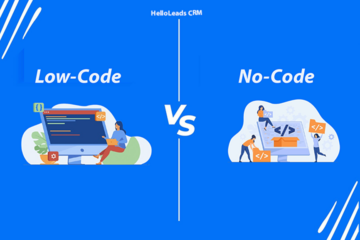
In today’s interconnected world, we have the opportunity to explore an extensive range of products and services online. Given the abundance of options, it’s common to seek insights from others before making a purchase decision. This is where customer reviews and ratings play a pivotal role. Customer reviews and ratings hold immense power over consumers’ buying decisions.
Why are customer reviews so powerful?
Customer reviews are incredibly powerful due to the psychological phenomenon of social proof, which influences people to trust the opinions of others. Positive reviews build credibility and trust, validating purchase decisions and providing valuable insights into product quality. It’s also important for businesses to interact with reviews, especially if there’s negative feedback. Being transparent and addressing concerns can build customer loyalty. Social proof has become a driving force behind successful marketing strategies, in the form of genuine feedback from real customers. Leveraging the impact of customer reviews can give businesses a competitive advantage, leading to increased customer acquisition and retention. Word-of-mouth amplification and SEO boost a brand’s reputation and visibility further.
Let us explore the remarkable impact of customer reviews and ratings on sales and how businesses can harness the power of social proof to drive growth and success. We will delve into the psychology behind the potency of customer feedback, examine the effects of positive and negative reviews on brand reputation and customer loyalty, and identify strategies to effectively monitor, respond to, and leverage customer reviews.
The impact of positive and negative reviews:

Positive reviews can be a game-changer for businesses. They build trust and credibility, making it easier for customers to choose one brand over another. A study by BrightLocal found that 86% of consumers read reviews for local businesses, and 91% of 18 to 34-year-olds trust online reviews as much as personal recommendations. A strong positive review presence can lead to increased customer loyalty as satisfied buyers become brand advocates, generating word-of-mouth marketing that money can’t buy.
On the other hand, negative reviews can significantly harm a business’s reputation. Potential customers might be deterred by critical feedback, leading to lost sales. However, negative reviews also offer opportunities for growth. When handled correctly, they can be turned into positive experiences, showcasing a business’s commitment to customer satisfaction.
How do you handle negative reviews?

Dealing with negative reviews requires a strategic approach. First and foremost, businesses should avoid taking negative feedback personally and instead view it as an opportunity to improve. Responding promptly, empathetically, and professionally to negative reviews can make a significant difference. Address the customer’s concerns, offer solutions, and, if necessary, take the conversation offline to resolve the issue privately.
By engaging with disgruntled customers openly and transparently, a business demonstrates that it values customer feedback and is committed to providing excellent service. This proactive approach can turn dissatisfied customers into loyal advocates, showcasing the business’s dedication to customer satisfaction.
How to encourage customer reviews and ratings:
To encourage more customer reviews and ratings, businesses can implement various strategies. One effective method is to simply ask customers for their feedback after a purchase. Sending follow-up emails or notifications with links to review platforms can prompt satisfied customers to share their experiences.
Here are some effective strategies to encourage customers to leave reviews and ratings:
- Simplify the review process by providing clear and accessible platforms for customers to leave their feedback
- After a purchase or interaction, send a follow-up email politely requesting a review. Personalize the request, express gratitude for their business, and explain how their input can help improve your products or services.
- Encourage customer reviews with incentives like discounts or gifts, ensuring transparency and honesty in the feedback. Genuine reviews build trust and provide valuable insights for the business.
- Actively engage with your customers on social media platforms.
- Leverage transactional emails (order confirmations, shipping notifications) to request reviews, capitalizing on the customer’s fresh experience with your brand and leading to higher review engagement.
- Displaying reviews on product pages or as testimonials can influence potential buyers positively and build trust in your brand.
- Provide exceptional customer service consistently, resolving issues promptly and going above and beyond to delight customers, leading to more positive reviews and satisfied customers.
- Demonstrate that you take customer reviews seriously by using their feedback to make improvements to your products, services, or overall customer experience.
Importance of customer reviews and ratings:
Below are a few important factors to be considered by businesses looking to understand the role of customer reviews in their marketing strategies:
1 . The power of customer recommendations:
Word-of-mouth marketing has long been a powerful driver of sales, and customer reviews are the digital version of this age-old phenomenon. Positive reviews serve as authentic recommendations from real customers, carrying significant weight in the minds of potential buyers.
2 . Building credibility with authentic reviews:
Being genuine and true is really important in today’s market. People are cautious about tricky advertising and promises that aren’t true. When customers share their honest thoughts, it’s like confirming, “This brand can be trusted, and their products or services are good.”
3 . Transparency as a key differentiator:
In a competitive marketplace, transparency can be a differentiator that sets a brand apart from its competitors. When a brand showcases both positive and critical reviews, it demonstrates transparency and a commitment to honesty. Acknowledging and addressing negative feedback showcases a willingness to listen to customers and continuously improve, further reinforcing the brand’s authenticity.
4 . Leveraging authentic reviews for marketing:
Incorporating real customer reviews into marketing strategies can greatly enhance authenticity. Rather than depending only on well-planned advertising campaigns, companies can utilize customer testimonials on social media, in email marketing, or on their website to produce content that is both relatable and trustworthy.
5 . The impact of fake reviews:
While genuine reviews can build trust, the rise of fake reviews poses a threat to this trust. Customers are getting better at spotting fake reviews, and businesses need to take action to stop fake practices. Putting in place methods to verify reviews and systems for reporting can make sure that customer feedback stays trustworthy.
In summary, customer reviews and ratings have immense power in shaping consumer behavior and influencing sales. Its impact extends to the realm of building trust, driving purchase decisions, and improving search engine rankings. It is crucial for companies to actively engage with customers, encourage genuine feedback, and address concerns promptly. By harnessing customer reviews and ratings, businesses can not only boost sales but also foster long-term customer loyalty and brand advocacy.
Share this blog :










